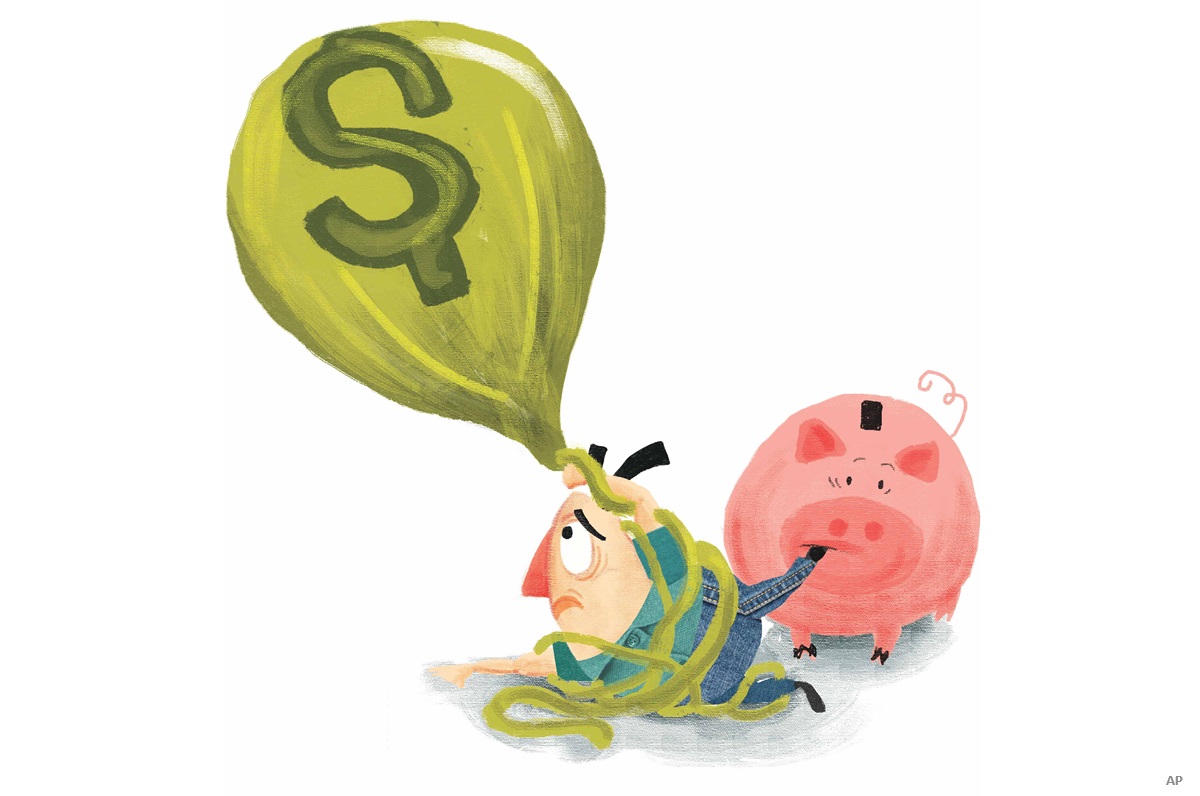
Last September, European markets shifted their bias from growth stocks to cyclical and value names in sectors such as energy and materials and financials. Yet stock picker Matt Peden argues that valuations are stretched among value names.
“The cyclical names have recovered quite strongly post-COVID, with many investors anticipating both a re-opening recovery and a macro-economic recovery,” says Peden, senior portfolio manager at Atlanta-based Invesco and lead manager of 5-star rated $479.9 million Invesco Europlus Series F. Peden, who joined Invesco’s Canadian operations in Toronto in 2009 after he earned an MBA from University of Toronto, moved to Atlanta in 2016. Peden cautions on “low long-term growth potential” and headwinds facing these companies, “from a shift to alternative energy and climate change proposals as well as, in the financial services space, a lot of potential disruption from the fintech innovations that are occurring. We are seeing that the valuations are quite full in these areas.”
Alternatively, Peden maintains that higher-growth healthcare companies and those in the so-called payment space are trading at more reasonable valuations. “The value-oriented companies have recovered quite strongly. But the growth-oriented companies appear to be trading at more reasonable valuations,” says Peden, who works alongside portfolio manager Andrea Salsiri.
Payments and Healthcare at pre-COVID Prices
“The shift [to value] has been quite pronounced with a number of those sectors trading above pre-COVID levels,” add Peden. “But we still see a number of higher growth sectors trading at lower multiples than their pre-COVID levels. The most prominent one would be the payment space, and also healthcare-related area. We are finding opportunities in the latter and among the non-cyclical industrials.”
From an investment style viewpoint, Peden and Salsiri have long favoured growth companies. “We are long-term investors. We need to find businesses that can grow and compound over the long run and a full market cycle. These types of businesses have always comprised the vast majority of our portfolio. It’s created more opportunities for us. But that has also led to a challenging period for a strategy that has focused on higher-growth non-cyclical businesses. But those areas have become out of favour,” says Peden, adding that the shift has also corresponded with rising interest rates, both in Europe and North America, a trend which is seen as beneficial to financial institutions.
For the 12-months ended January 10, Invesco Europlus Series F returned 2.57%, versus 10.46% for the European Equity category. However, the fund’s longer-term numbers are much stronger since it returned an annualized 13.12% and 9.59% over the past three and five years. In contrast, the category returned an annualized 9.64% and 7.57% respectively.
Bought the Dip
As investors fled from growth names, and their prices fell, the management team used up much of the cash that had built up last spring and summer. “We’ve added companies in the payment space and some of our existing holdings that we believe trade at much more reasonable valuations. Some companies are trading below their pre-COVID levels, despite having current earnings that are above their pre-COVID levels in some cases.”
Carving out COVID Risk
Meanwhile, Peden notes that markets have recovered much of the losses that occurred when the Omicron variant was identified in early December. “Hopefully, this may moderate in terms of the severity of cases. That being said, the transmissibility of this new variant, even if is more mild, can still lead to a lot of hospitalizations. We are definitely concerned. Fortunately, the companies we own tend to be more immune to COVID-related shutdown measures, or measures taken to reduce the spread.”
As for rising inflation weighing on markets, Peden argues that it could be a temporary factor. “Some of the supply-chain driven inflation will probably moderate. But in terms of wage inflation, the employment market is quite strong, more so in the U.S. than Europe. It’s also hard to determine how much of this has been driven by stimulus spending by governments in developed markets, which began in the spring of 2020. As those programs gradually unwind, that could be a moderating factor.”
Concentrated Quality
While macro-economic challenges are a concern, Peden remains a bottom-up investor who applies a highly concentrated methodology and holds only 19 names in the portfolio, as of Nov. 20. “We believe in a high-conviction approach, while maintaining diversification through having companies that are exposed to a wide range of end-markets. We manage the risk exposures by ensuring that the holdings are very diverse in terms of their underlying exposures,” says Peden, adding that names are chosen for their strong growth characteristics and held for five to 10 years. “We need to see that these companies have protected cash flow streams through sort of competitive advantage. That combination of higher growth and higher quality characteristics allows us to hold a concentrated portfolio, while also managing the downside risks.”
The country and sector weights are a by-product of the stock selection process. As of Nov. 30, the top geographic weightings were: 19.46% U.K., 17.41% Germany, 13.02% the Netherlands, and 20.81% France. From a sector viewpoint, the top sectors are 26.66% industrials, 25.22% healthcare, and 9.68% in information technology.
One top holding is Eurofins Scientific SE (ERF), a global leader in the laboratory testing space. “They provide services to companies developing new drugs and also early-stage research and development for the life sciences industry,” says Peden, noting that the firm provides testing for food manufacturers and ensure that products are safe and also for environmental testing. “They have also expanded during COVID to use their laboratory network to assist governments and healthcare systems worldwide to provide COVID testing. They tend to specialize in more esoteric, higher-value tests.”
Listed in Luxembourg, where it has its headquarters, the company trades at 22 times 2020 earnings, and 23 times estimated 2021 earnings. With the dramatic rise in the Omicron variant, Peden expects that revenues will remain strong for some time. The firm is among the top five globally, says Peden, adding that the company’s so-called EBITDA (earnings before interest taxes depreciation and amortization) margin exceeds 20% over the past year.
Another favourite is Adyen NV (ADYEN), an Amsterdam-based e-commerce firm that specializes in payment processing. “It’s a high-growth company and the largest payment provider by market capitalization in Europe. They do processing for both online and offline transactions,” says Peden. “Their advantage is that they operate a single platform globally, while many competitors have challenges trying to integrate different systems they’ve acquired over the years. Many of Adyen’s employees came from its competitors and saw the problems inherent in operating multiple platforms.”
Adyen has benefitted from COVID because of the rapid increase in online payments. As a result, it has seen revenues grow by more than 30% year-over-year. The stock is not cheap as it is trading at 153 times 2021 earnings and 107 times estimated 2022 earnings. “The multiple is down nearly one-third, because Adyen is growing so rapidly.”
Performance Speaks Louder than Price
Looking ahead, Peden argues that in general stock prices will follow the underlying performance of companies. “If you look at the growth in stock prices in the cyclical areas, such as financials, they have well outpaced the underlying earnings growth that we would expect to occur on a long-term basis. Those businesses are either slow or no-growth businesses. Multiple expansion cannot occur in perpetuity.”
But arguing that patience will be rewarded, Peden is sticking with his selection of European growth names because of their superior long-term potential. “Even if the higher growth businesses that we own do not experience multiple expansion, or even multiple compression, the underlying business growth is so high that the stocks should eventually follow and out-perform the cyclical sectors.”





















